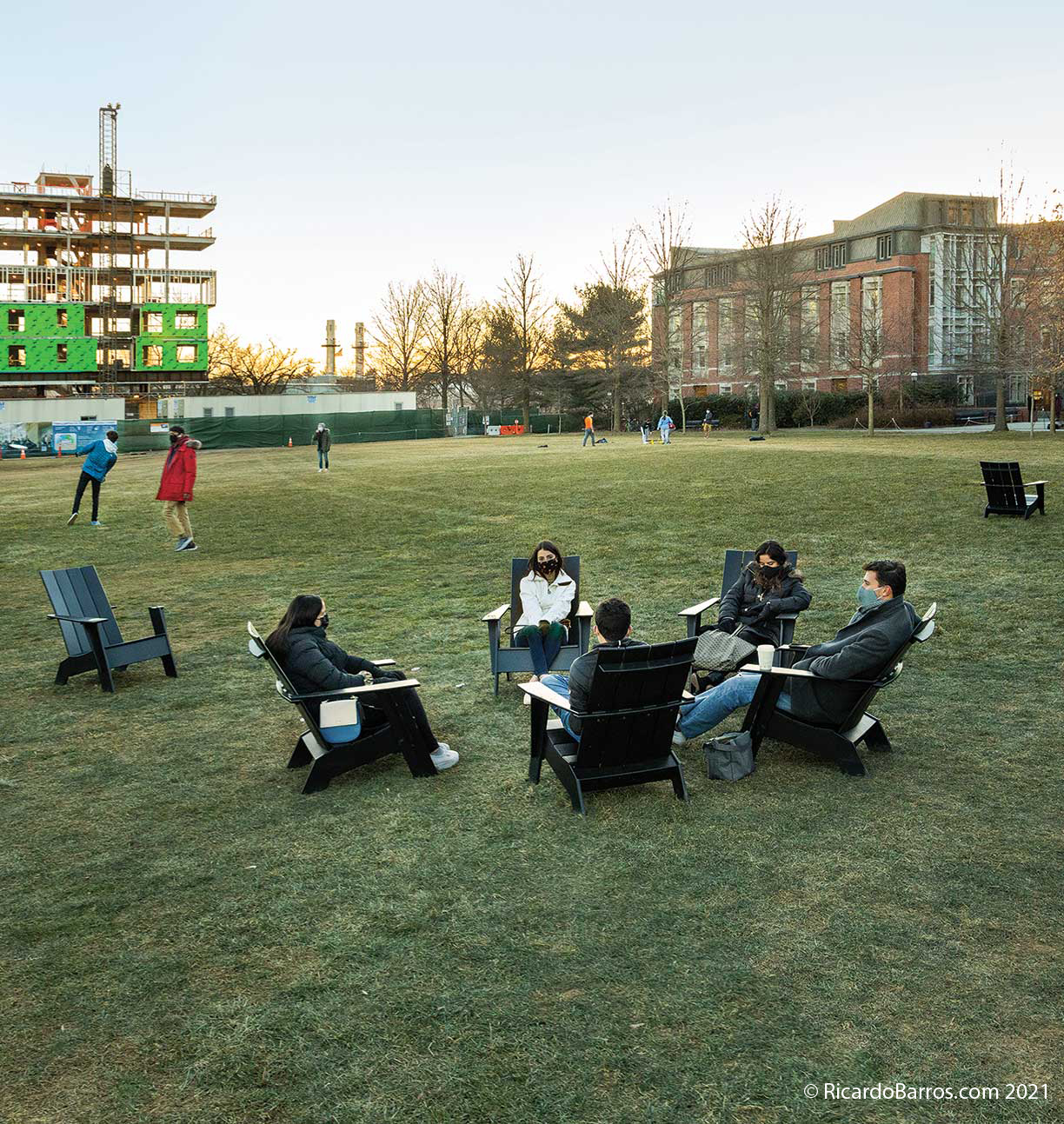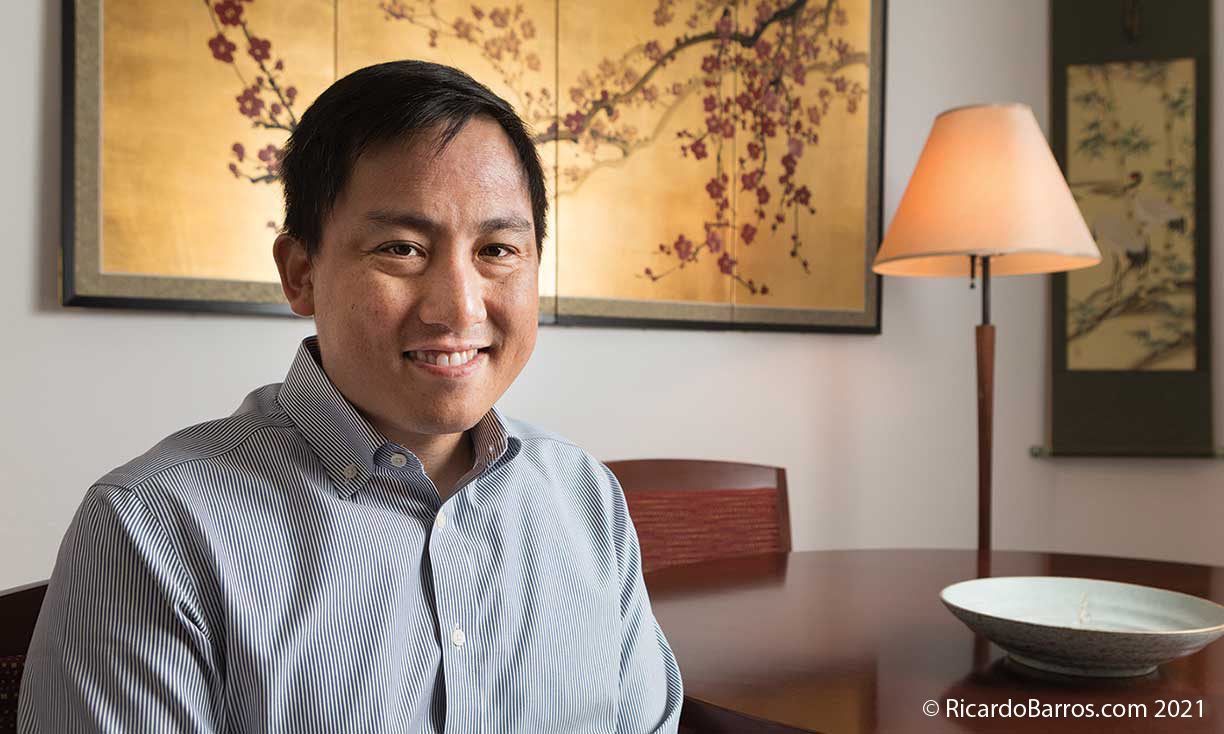Concerns For Students’ Mental Health Grow Amid Pandemic
‘This is a difficult situation for everybody,’ said Diana Chao ’21
“In national surveys they’ve found that there have been increases in the rates of depression and anxiety and that this is especially true for young adults,” Chin said. “And so I do worry that the trauma of COVID will have lasting impacts on students, and we’re just beginning to see what those impacts are.”
Hannah Reynolds ’22 said her return to campus was isolating, especially during the quarantine period. In the beginning it was hard to see others, and nobody wanted to leave their rooms to meet outside because of the cold weather. Things have improved, and Reynolds said she is ultimately glad to be back on campus.
She has found creative ways to spend time with friends, such as going to the gym together or grabbing a socially distanced meal. But she worries for many of the freshmen she mentors as a peer academic adviser; they are having a harder time making friends and are struggling with loneliness, she said. Reynolds feels administrators are not addressing these particular concerns. “They’ll send emails that are, like ‘Hey, make sure to take breaks,’ but are kind of very fluffy — and not really getting down to the point that mental health is really important and that people should take it seriously,” she said.
Students have differing opinions of how the University is handling the challenges of campus life during a pandemic. Critics point to the dining hall food, which they say is repetitive and limited for those with dietary restrictions, and the decision to shorten spring break to a few days. Jess Fasano, a University spokeswoman, said that Campus Dining had made changes to its offerings in response to student requests and continues to welcome suggestions. Dean of the College Jill Dolan, in a January letter, urged professors to avoid making assignments due immediately after the abbreviated spring break.
Another sore point is the strictness of the restrictions on campus, including social distancing and limits on the number of students who can gather. Through late February, 44 students had been placed on disciplinary probation and eight were barred from campus for violations of the social contract, according to a report from the Office of the Dean of Undergraduate Students. Fasano said that thanks to students and staff adhering to guidelines, Princeton has “so far been able to avoid the additional restrictions on activities that have been necessary on other campuses following spikes in COVID cases and reports of unsafe behavior.”
“I understand completely why students sometimes feel frustrated because it is kind of an impossible task,” Chin said. “How do you make sure you abide by the public-health guidance standards? These aren’t rules Princeton made up; these are rules that come from real recommendations from professionals about how to maintain safety and prevent the spread of COVID — and so there just are limits. You can’t throw a big dance party, right? And there’s nothing that’s really going to replace that.”
No one is expecting perfection, and many cut the University slack. “This is a difficult situation for everybody,” said Diana Chao ’21. “I know they’re [Princeton] trying their best.” Chao, like many other students at Princeton, is working to offer support. As a sophomore in high school, she founded Letters to Strangers, a nonprofit seeking to destigmatize mental illness, after she was diagnosed with bipolar disorder. Within the last year, the organization partnered with the Undergraduate Student Government to create a mental-health guidebook to help students understand and navigate available campus resources. Chao also spoke on a panel about student mental health in an event tied to The Manic Monologues, a virtual theater experience highlighting mental health (see story at paw.princeton.edu).
But despite Princeton’s mental-health resources, some students question whether returning to campus was the right decision. Gabriella Carter ’22 said her mental health has suffered since returning in January. Carter is Black and founder of the mental health organization, Our Health Matters, geared toward Black women. She said most of her friends, who are also Black women, decided not to return for the spring semester, so her experience has been particularly isolating. She said she has sought counseling through CPS, but she was troubled to find few counselors who shared her background.
“I came back because I felt like I could do more work on campus, but honestly, I shouldn’t have come back,” she said. “Honestly, I regret it.”













No responses yet